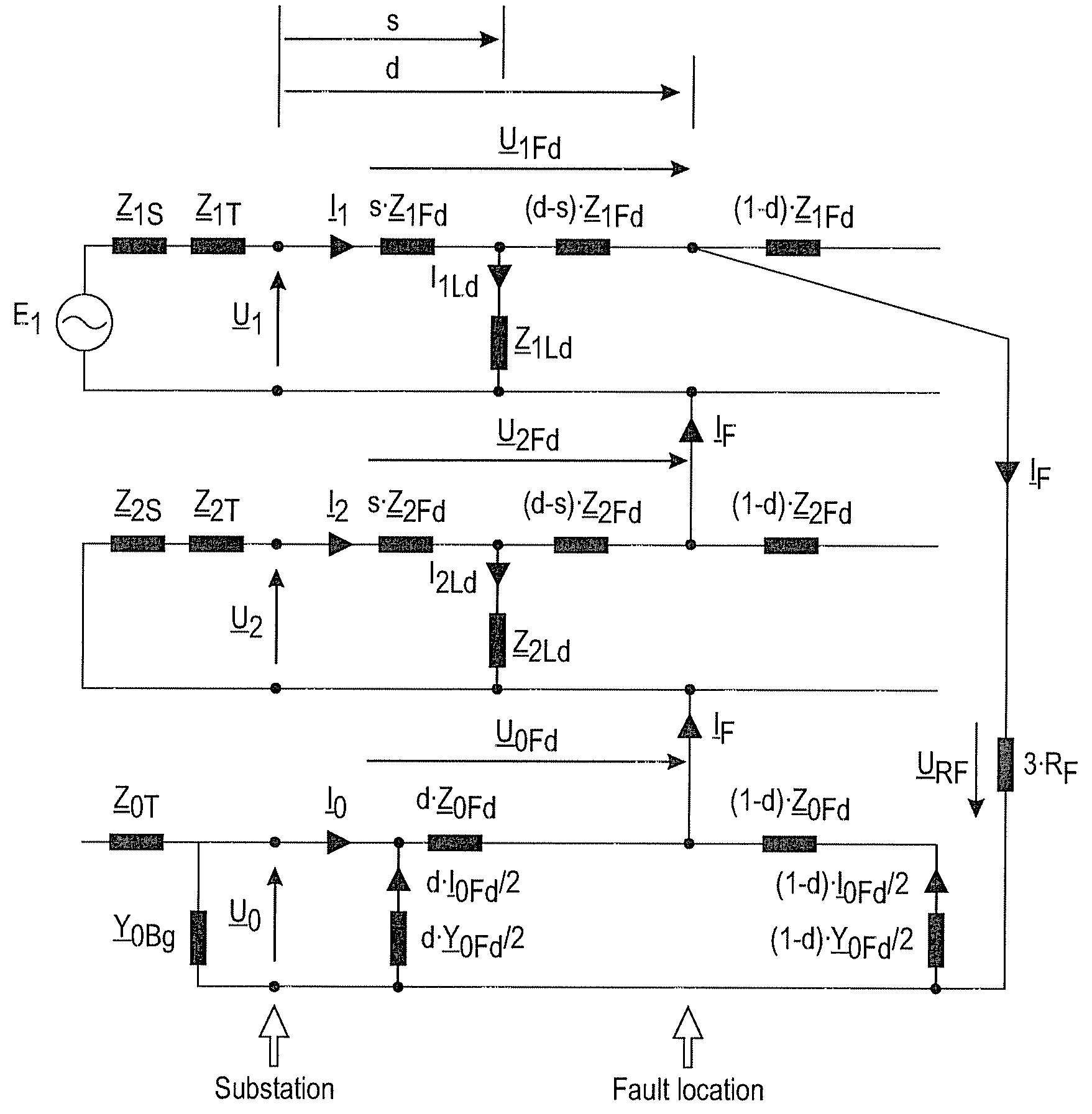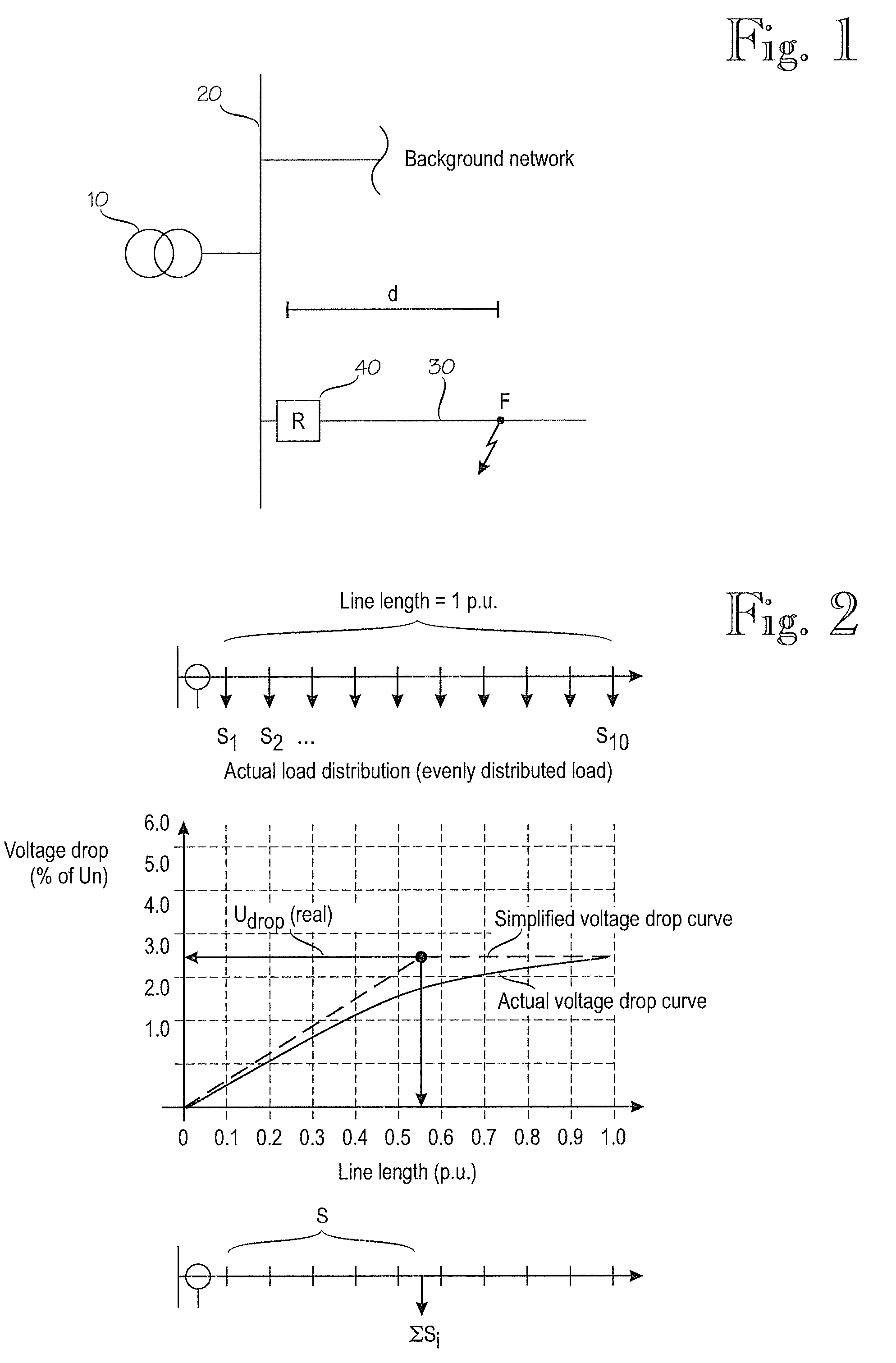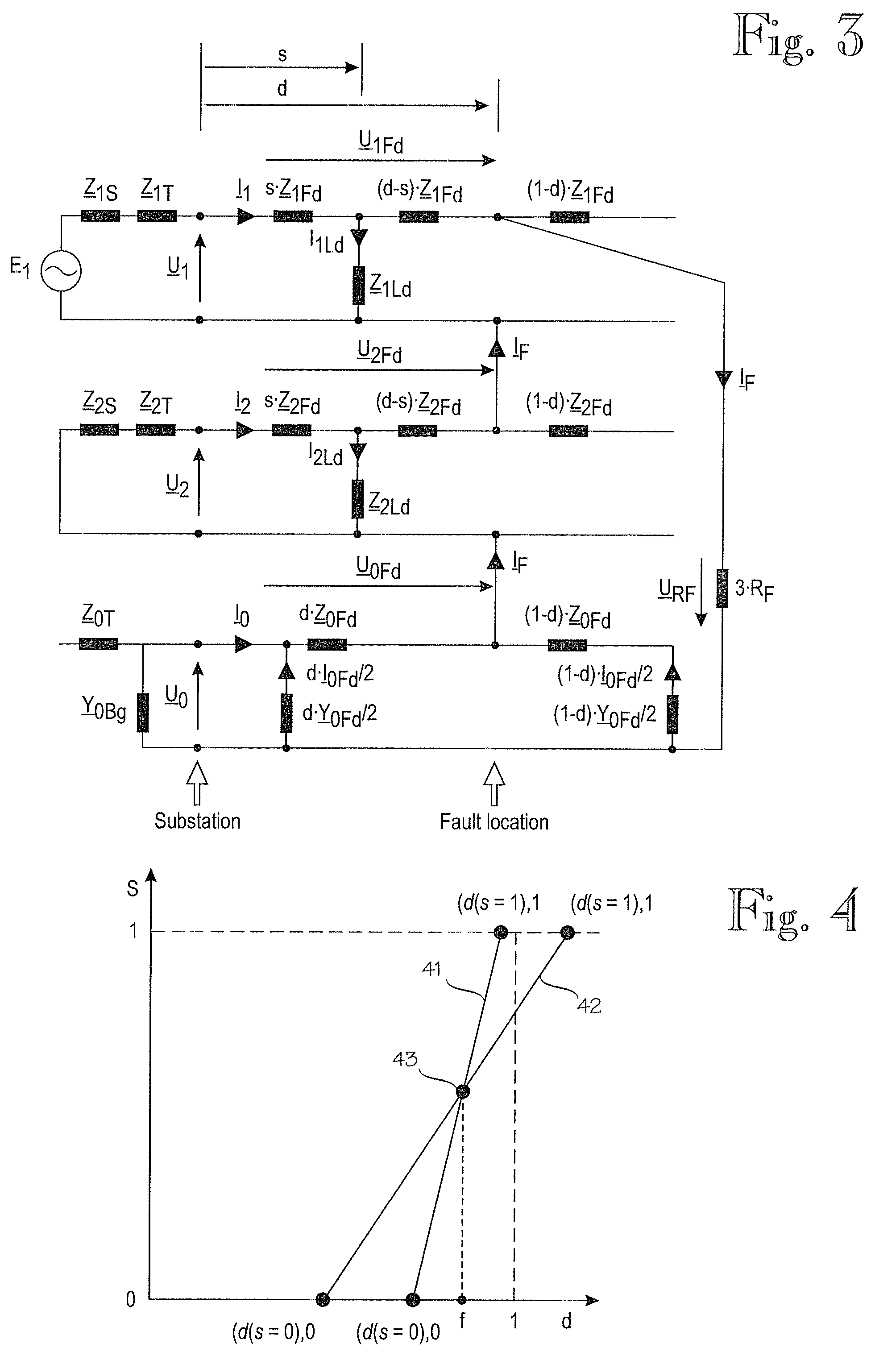Method for determining location of phase-to-earth fault
a phase-to-earth fault and location technology, applied in the field of single-phase earth fault location, can solve the problems of deteriorating the accuracy of a calculated fault location estimate, especially challenging distribution networks, and difficult fault localization, so as to improve the tolerance for load current, improve the accuracy of fault localization, and improve the effect of fault location
- Summary
- Abstract
- Description
- Claims
- Application Information
AI Technical Summary
Benefits of technology
Problems solved by technology
Method used
Image
Examples
Embodiment Construction
[0014]The application of the invention is not limited to any specific system, but it can be used in connection with various three-phase electric systems to determine a location of a phase-to-earth fault on a three-phase electric line of an electric network. The electric line can be a feeder, for example, and may be an overhead-line or a cable or a combination of both. The electric power system in which the invention is implemented can be an electric transmission or distribution network or a component thereof, for example, and may comprise several feeders. Moreover, the use of the invention is not limited to systems employing 50-Hz or 60-Hz fundamental frequencies or to any specific voltage level.
[0015]FIG. 1 is a simplified diagram illustrating an electric network in which the invention can be applied. The figure shows only the components necessary for understanding the invention. The exemplary network can be a medium voltage (e.g. 20 kV) distribution network fed through a substatio...
PUM
 Login to View More
Login to View More Abstract
Description
Claims
Application Information
 Login to View More
Login to View More - R&D
- Intellectual Property
- Life Sciences
- Materials
- Tech Scout
- Unparalleled Data Quality
- Higher Quality Content
- 60% Fewer Hallucinations
Browse by: Latest US Patents, China's latest patents, Technical Efficacy Thesaurus, Application Domain, Technology Topic, Popular Technical Reports.
© 2025 PatSnap. All rights reserved.Legal|Privacy policy|Modern Slavery Act Transparency Statement|Sitemap|About US| Contact US: help@patsnap.com



